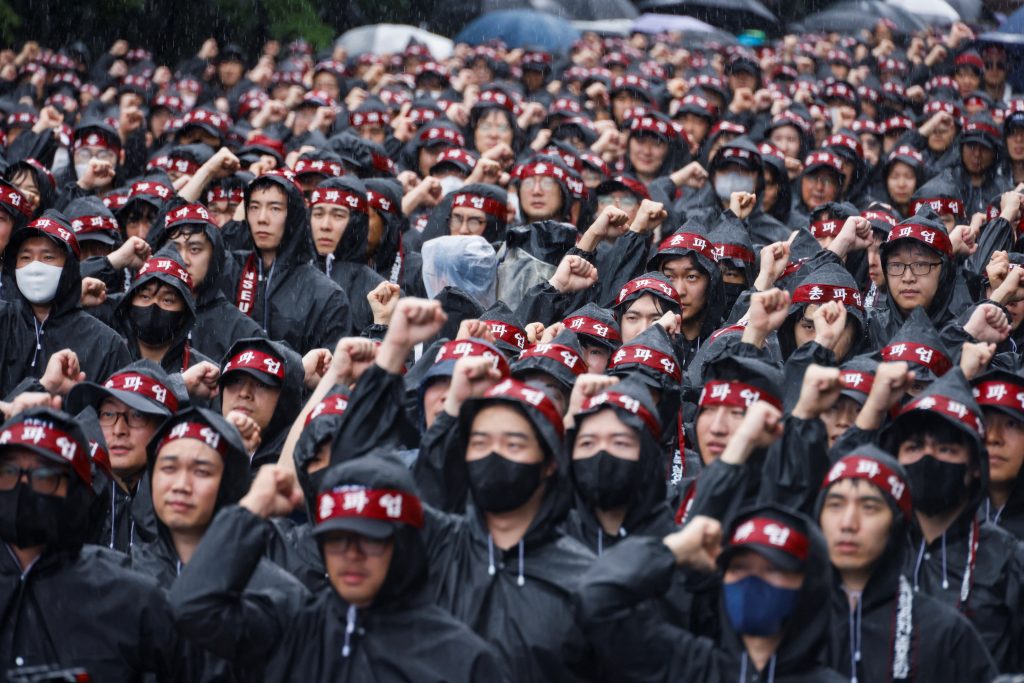Employees at South Korean tech giant Samsung commenced a three-day general strike on salaries and allowances on Monday. The head of a union representing tens of thousands of employees informed the press, warning that the action could affect memory chip production.
Samsung Electronics is the world’s main memory chip maker and is responsible for a significant mass of the global output of high-end chips.
Thousands of workers assembled outside the company’s foundry and semiconductor factory in Hwaseong, Gyeonggi, wearing rain jackets and ribbons with “fight with solidarity” written on them.
Since January, Samsung management has been locked in negotiations with the union, with both sides unable to narrow differences on benefits and a rejected 5.1 percent pay raise offer from the firm.
“The strike has started from today,” Son Woo-mok, head of the National Samsung Electronics Union, told AFP.
“Today’s general strike is just the beginning. Recalling why we are here, please do not come to work until July 10th and do not receive any business calls,” he told the protesting workers.
About 5,200 people from factory facilities, manufacturing, and development had joined the demonstrations.
“Do they still not think this will affect their production line?” said Lee Hyun-kuk, vice president of the union.
With its more than 30,000 members, accounting for about a fifth of the company’s total workforce, it says its three-day general was a last resort after the negotiations impasse.
In June, the unions held a one-day walkout, the first such collective action at the company, which went decades without unionisation.
The union appealed to members last week, asking them to come out enmasse to support the strike:
“We are now at a critical crossroads. This strike is the last card we can use,” it said, saying that staff members at the company should “act as one”.
“I’m really excited,” one union member and protester told AFP. “We’re making history.”
Workers rejected the offer of a 5.1 percent pay hike in March, with the union having previously outlined demands including improved annual leave and better performance-based bonuses.
In his view, business professor Kim Dae-jong at Sejong University told AFP that
“While the ongoing strike is only scheduled for three days, the participating members include those working in chip assembly lines.”
“Given that the union could carry out additional strikes in case the gridlock continues, it could pose a great risk to Samsung management amid its race for dominance in the competitive chips market.”
For nearly 50 years, Samsung Electronics avoided its employees unionising, sometimes adopting ferocious tactics, according to critics, while rising to become the world’s largest producer of smartphones and semiconductors. The first labour union at Samsung Electronics was formed in the late 2010s.
Company founder Lee Byung-chul, who died in 1987, was adamantly opposed to unions, saying he would never allow them “until I have dirt over my eyes”.
Figures released by its Ministry of Trade show that Semiconductors are South Korea’s leading export and hit $11.7 billion in March, their highest level in almost two years, accounting for 20% of South Korea’s total exports.

